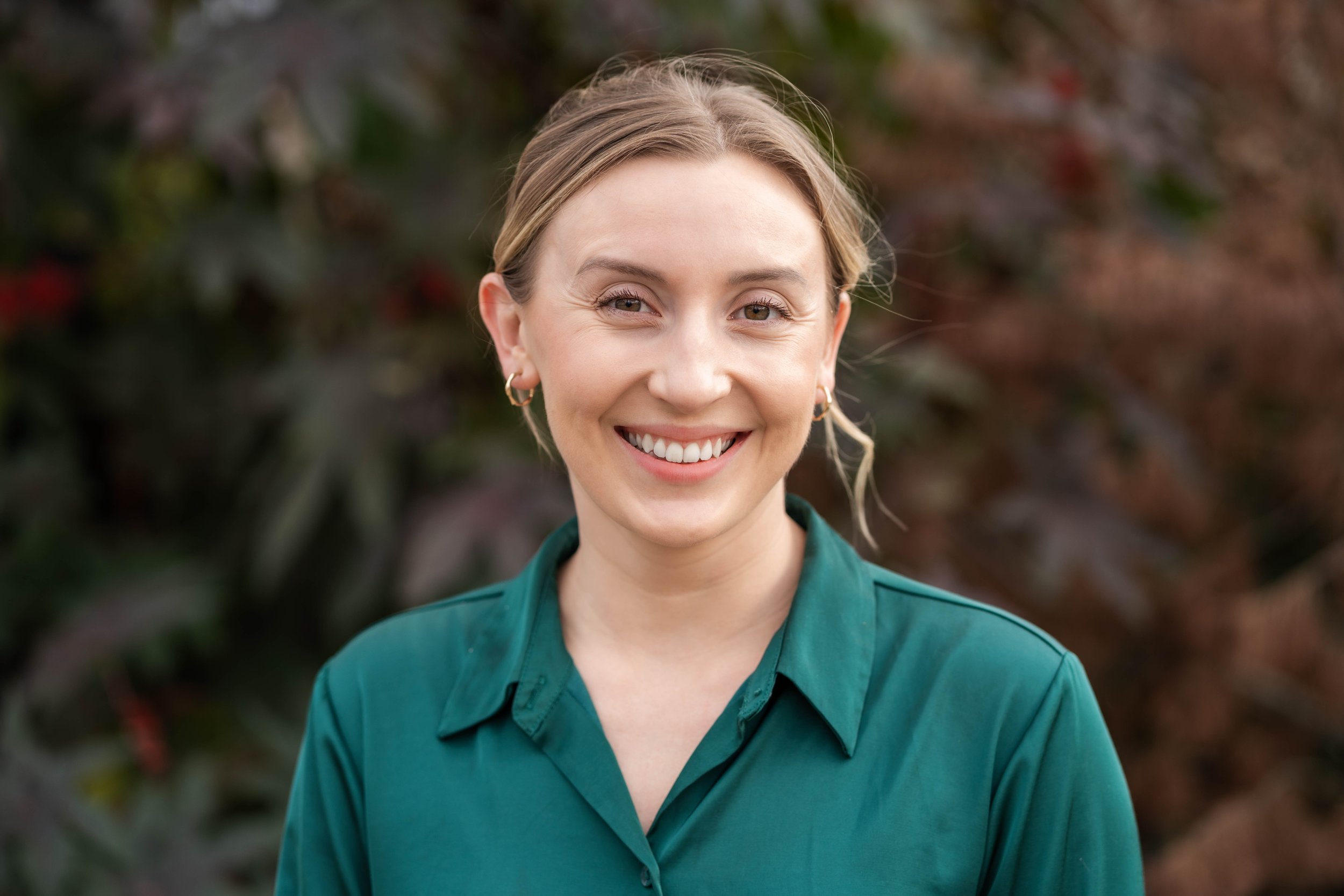“It’s wonderful to be loved but its profound to be understood.”
Caitlin Day, MSW, LSW
I was drawn to this work because I deeply value what it means to be truly seen and known. It’s a privilege to walk alongside others as they explore themselves more fully, and I believe that therapy offers a space for reflection, support, and growth.
My approach is relational, collaborative, and rooted in interpersonal neurobiology, with a strong focus on attachment. I believe in gentle, responsive care, allowing you and your family to lead the way in your healing. I don’t see you as someone who needs to be “fixed”—rather, you may be looking for tools, fresh perspectives, and someone to hold your story.
I work with children (3+), adolescents, and adults, focusing on those navigating unique family-building experiences, parental separation, and loss. My practice integrates art, play, and creative expression, alongside elements of somatic work, DBT, skill-building, and resourcing. For children, I offer both directive and non-directive play-based interventions to create a space where they can process emotions and practice skills in ways that feel natural and accessible. I take an active approach, providing education and tailored resources to fit your needs. My goal is to help you build skills, gain insight, and feel more empowered in your own journey.
Therapy is most meaningful when it feels genuine and personal, and I bring my own authenticity and vulnerabilityinto our work together. I understand that we all carry many parts of ourselves. I’m a Columbus native, a dog lover, a sister, a daughter, a partner—and I’m also a donor-conceived person (DCP). I know firsthand the complexities of honoring our histories while seeking connection within families, and I strive to provide empathetic, relational care to support you in doing the same.
I earned my Master of Social Work from The Ohio State University and a Bachelor of Arts in Sociology from Wittenberg University. With over eight years of experience in child welfare, domestic violence, youth programming, and school-based mental health, I have spent much of my career working with individuals impacted by parental separation and loss. I integrate my personal and professional experience, alongside ongoing training and consultation with those with lived experience, to help support individuals and families in their emotional well-being.
I look forward to meeting you.
For a free 20 minute consult or to schedule an appointment, please email me at caitlin@encompassadoptees.org.
Areas of Focus
Play-based therapy
Working with youth & teens, and families — Helping families increase coping skills in dealing with big emotions and difficult experiences
Attachment and trauma-informed parenting support
Support for recipient parents of DCP or adoption— knowing when and how to share your child’s information, empowering your child in knowing and holding their own story, holding space for the many emotions accompanying these experiences
Support for individuals who are DCP, have DNA discoveries, and/or surprises — Navigating the impact on self-perception, coping with DNA discoveries, identifying and integrating the complex emotions related to identity, navigating relationships with family
Developmental, interpersonal, and generational trauma
Benefits of using play in therapy - for youth
Children learn to understand the world and communicate through play. Using imagination and metaphor as a lens for understanding, we can gain insight into children’s inner worlds and help them feel and/or find the words to process the hard things. When children have experienced attachment injury, parent-child play can help rebuild healthy attachment and trust and make communication safer.
Offers sensory experiences and movement
Aids in development of coping strategies and problem-solving skills
Practicing social skills and frustration tolerance (sharing, mirroring, impulse control, emotion regulation, etc.)
Builds empathy, kindness, and respect for others
Allows for a fuller expression of feelings and processing of trauma (especially those that are preverbal and/or difficult to find language for)
Increases capacity for healthy attachments
Strengthens family relationships to understand and communicate with their children — play is a great equalizer





